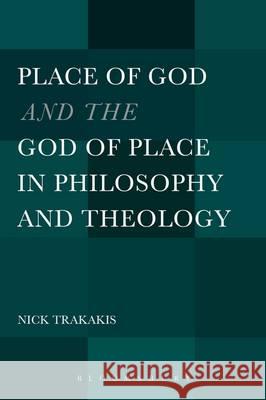The Place of God and the God of Place in Philosophy and Theology » książka
The Place of God and the God of Place in Philosophy and Theology
ISBN-13: 9781441139436 / Angielski / Twarda / 2016 / 192 str.
The tendency after the scientific revolution of the seventeenth century has been for 'place' (the landscapes and dwellings that make meaningful social life possible) to be assimilated to objective 'space' (a homogenous, mappable territory). The past three centuries in the West have therefore witnessed the neglect, if not the active suppression of place, especially in science and philosophy. If we turn to philosophy of religion, the situation is no different, and arguably it is even worse. The idea that place can be an important means for understanding religious concepts and practices is rarely discussed amongst philosophers of religion.
To redress this, Trakakis engages with the insights of philosophy and theology, but also architecture, geography and poetry, to develop a dynamic understanding of place that opens up the way for a new understanding of God. In contrast with both the overly anthropomorphic view of God prevalent in contemporary philosophy of religion, and the highly metaphysical strands of Christian theology, a model of divinity is proposed that sees God as at once below (earth-bound) and beyond (incomprehensible).











